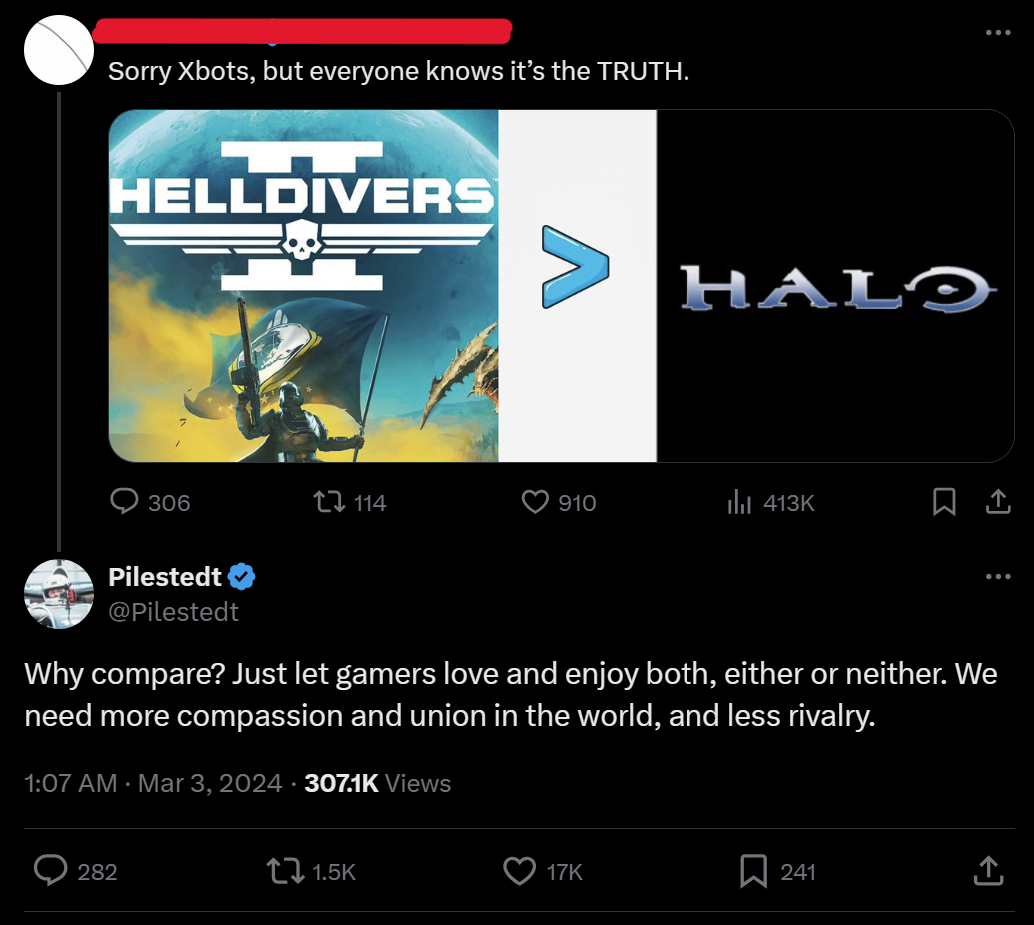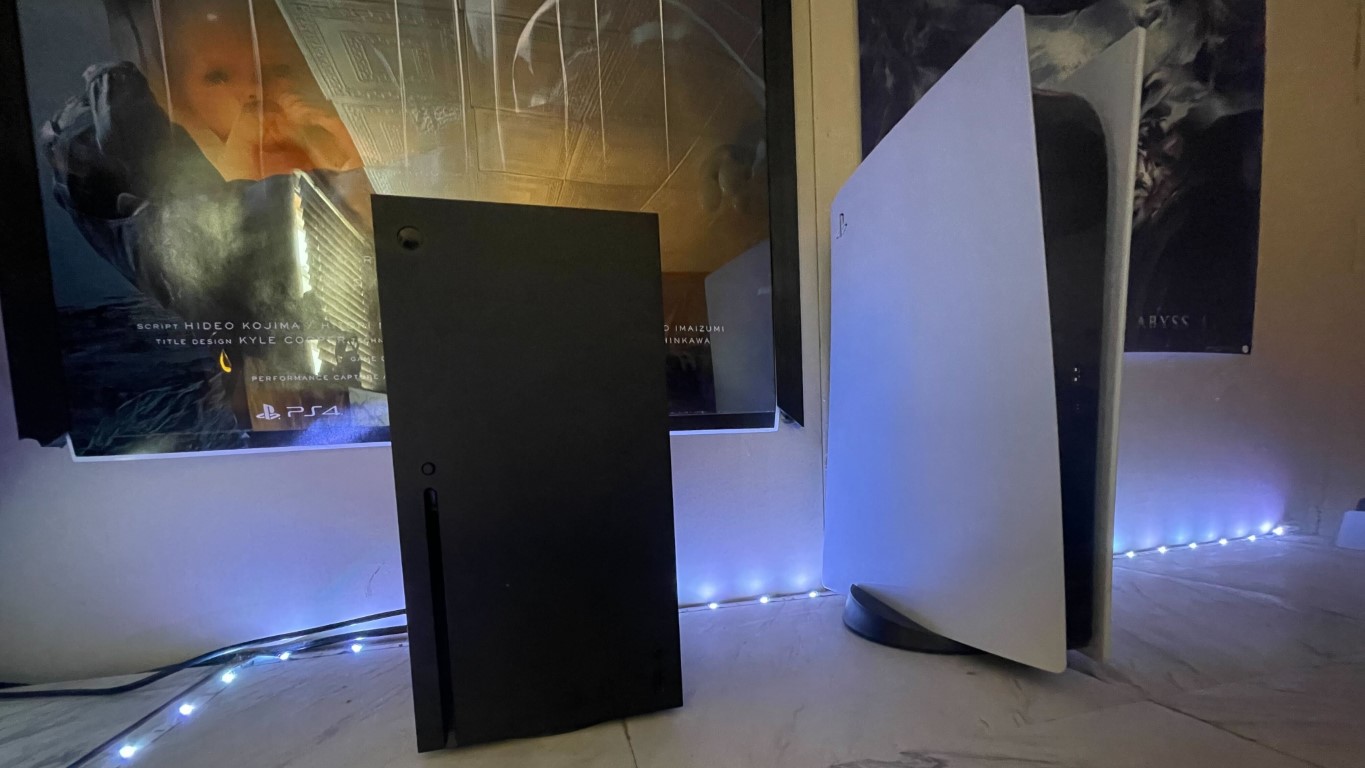What you need to know
- Helldivers 2 is an incredible 4-player co-op Horde shooter, where players battle swarms of bugs and rogue robots in an escalating war for galactic supremacy.
- The game has been a huge success story for Sony, developed in partnership with independent studio Arrowhead.
- A huge portion of the game’s success has been on Windows PC, but that hasn’t stopped console fanboys on all “sides” weaponizing the game for dumb takes.
- One of these strange fanboy accounts was recently addressed by Arrowhead’s CEO, Johan Pilestedt, who called for more “compassion” in the world.
It’s always nice to see a console fanboy get taken down a peg, but Arrowhead CEO Johan Pilestedt’s poignant take to one of these more forced and nonsensical comparisons touched on a far broader message.
The video game industry is changing quite rapidly. Recently, Xbox decided to reveal during a podcast it called a “business update” that it will be bringing more of its games to PlayStation, starting with Pentiment, Sea of Thieves, Grounded, and Hi-Fi Rush. While some have legitimate concerns this could further erode Xbox hardware over time, there were plenty who were angry for more tribalistic reasons. PlayStation has also signalled an intent to bring more of its games day and date to Windows 11, and one of its first outings, Helldivers 2, has been a huge success story.
Arrowhead is no stranger to PC gaming of course, Helldivers 1 is also a tremendous game available on Steam. But it has been Helldivers 2 that has been one of the quarters biggest’ games, blowing past other recent big publisher service-type games like Suicide Squad and Skull and Bones. The PlayStation / PC exclusive has also been weaponized by some console fanboys to create rage bait, with one such account claiming “Xbots, everyone knows the truth,” atop an image macro showing “Helldivers 2 > Halo.”
The comparison by itself makes little sense, considering the games are wildly different. But it’s no secret Halo Infinite had difficulties offering a complete live service when it launched. It’s also true that Halo as a franchise is a multi-billion dollar business, spanning books, shows, and games. Either way, Arrowhead CEO Johan Pilestedt had a great response to cut through the petty tribalism.

“Why compare?” Pilestedt continued, “Just let gamers love and enjoy both, either or neither. We need more compassion and union in the world, and less rivalry.”
In a vacuum it was a great response in its own right, but it’s also touches upon broader topics both within and beyond gaming.
A more collaborative console future

Microsoft is gradually collaborating more and more with both of its console rivals, PlayStation and Nintendo, with a promise to bring Call of Duty to Nintendo devices for the first time, and with games like Sea of Thieves hitting PlayStation for the first time. It’s true that by most metrics, the pool of console gamers isn’t growing in any meaningful way. It’s also true that while PlayStation enjoys the largest share, Xbox and Nintendo both have millions of gamers digitally-locked to their respective platforms. Excluding players from where they are “locked-into” is going to become increasingly difficult for the main console manufacturers, particularly as Steam starts building its own “console platform” with the rather incredible handheld Steam Deck.
Each platform is exploring its options for further growth. Nintendo is leveraging its IP to build theme parks and expand its big-budget multimedia aspirations. PlayStation is exploring day-and-date PC game releases seriously for the first time. And Xbox is seeking growth in mobile, with its Activision-Blizzard-King purchase. PlayStation is rumored to be building a native gaming handheld of its own, following the PlayStation Portal. I believe that Xbox is also exploring a gaming handheld design too, based on rumors and whispers I’ve been hearing throughout the industry.
What would it look like if Helldivers 2 was on Xbox? I reckon Sony and Arrowhead both would make a ton of money, without degrading PlayStation in the process — particularly now that Xbox is supporting PlayStation more directly. Perhaps that kind of collaborative future isn’t as alien as it once might’ve seemed.




